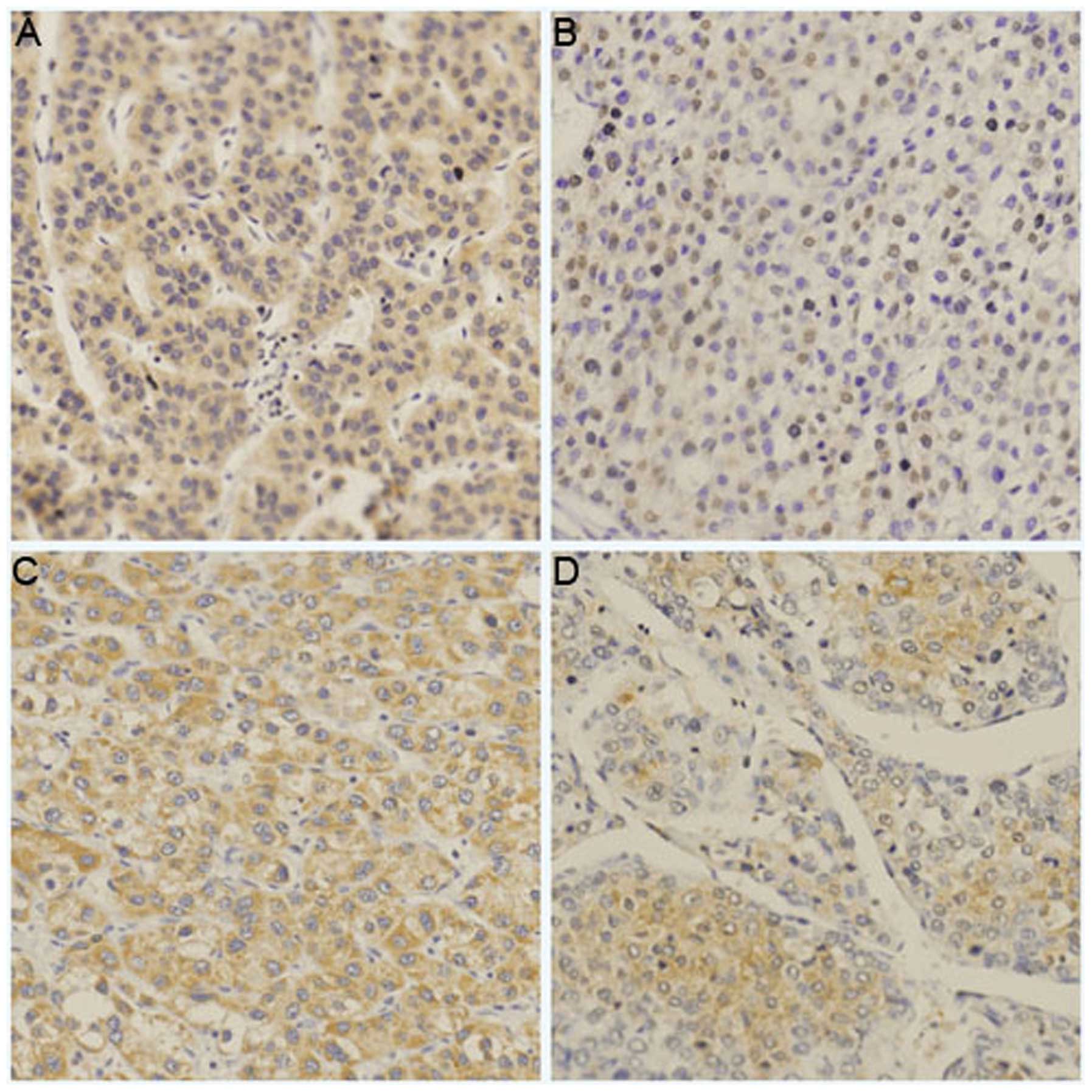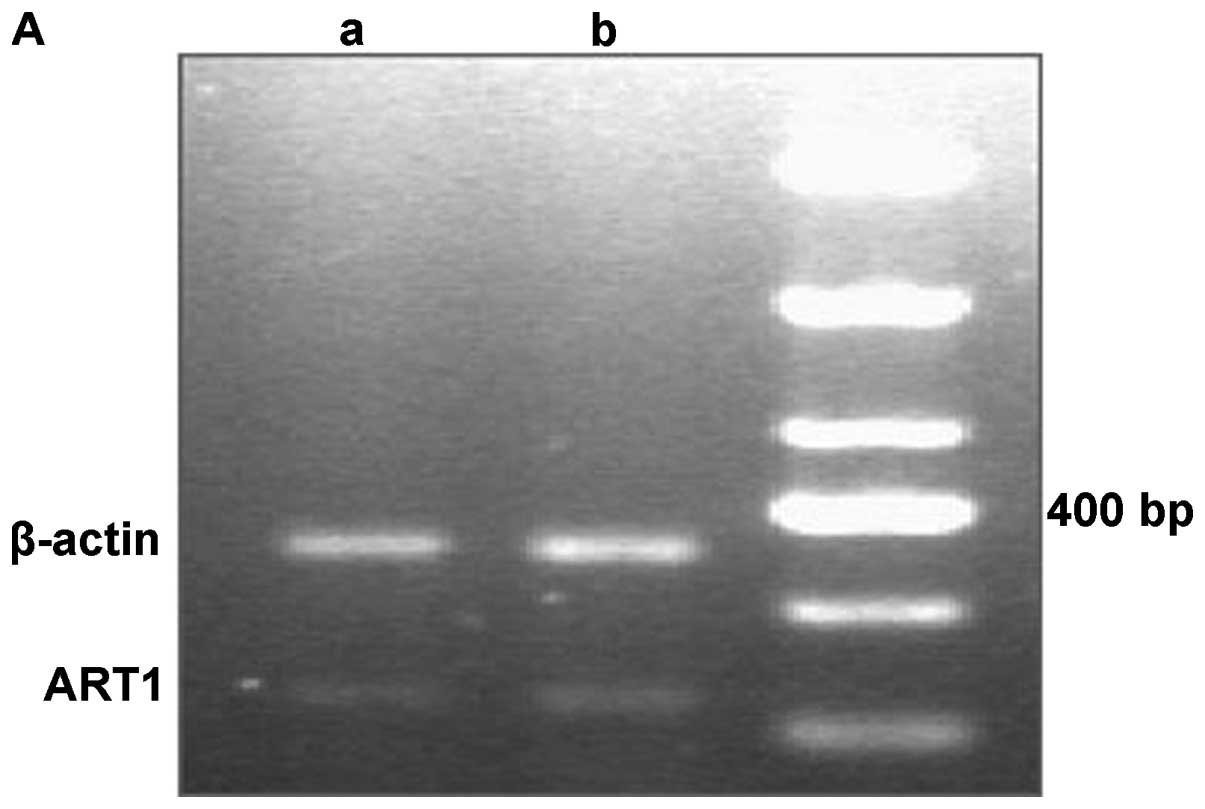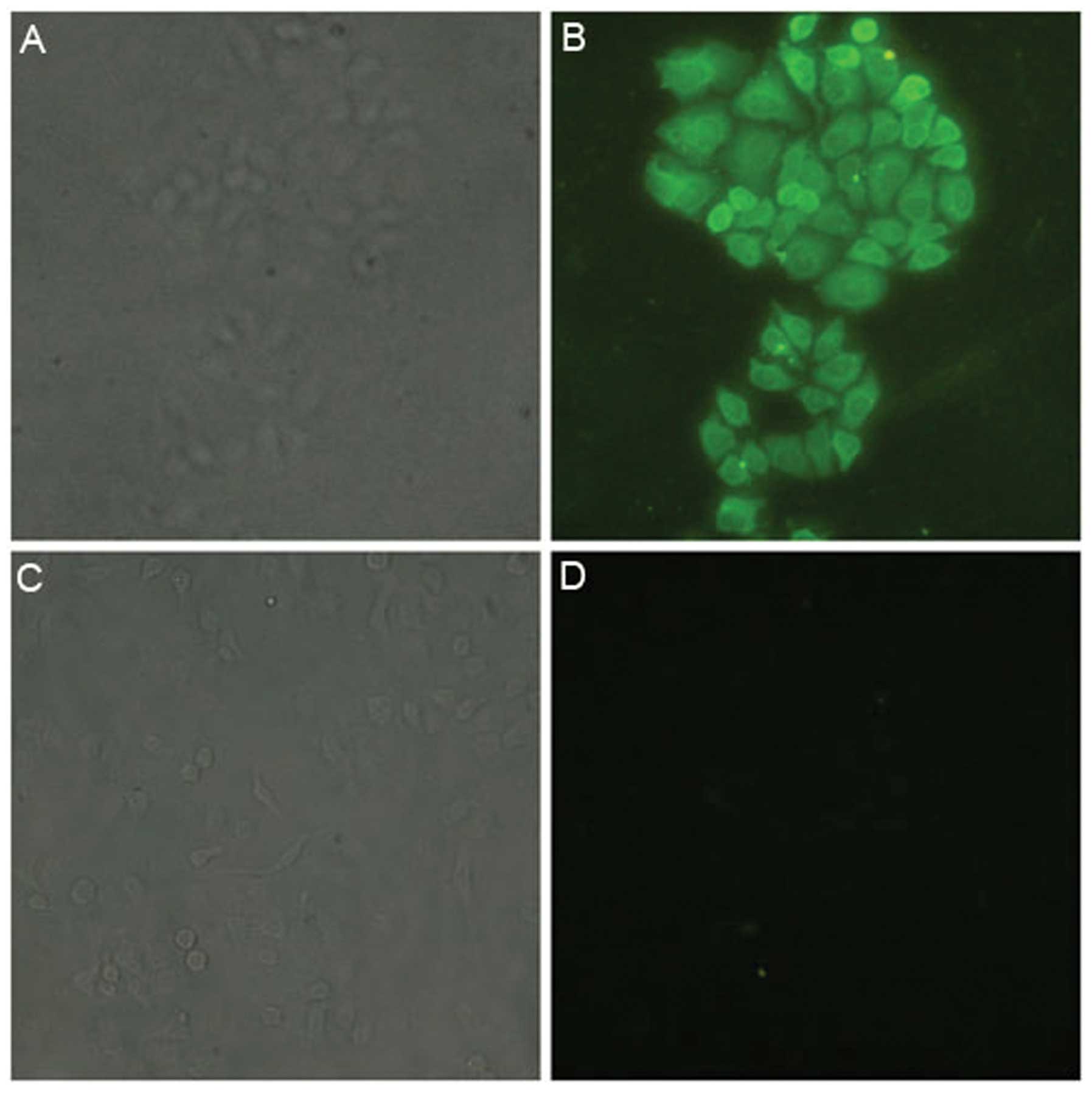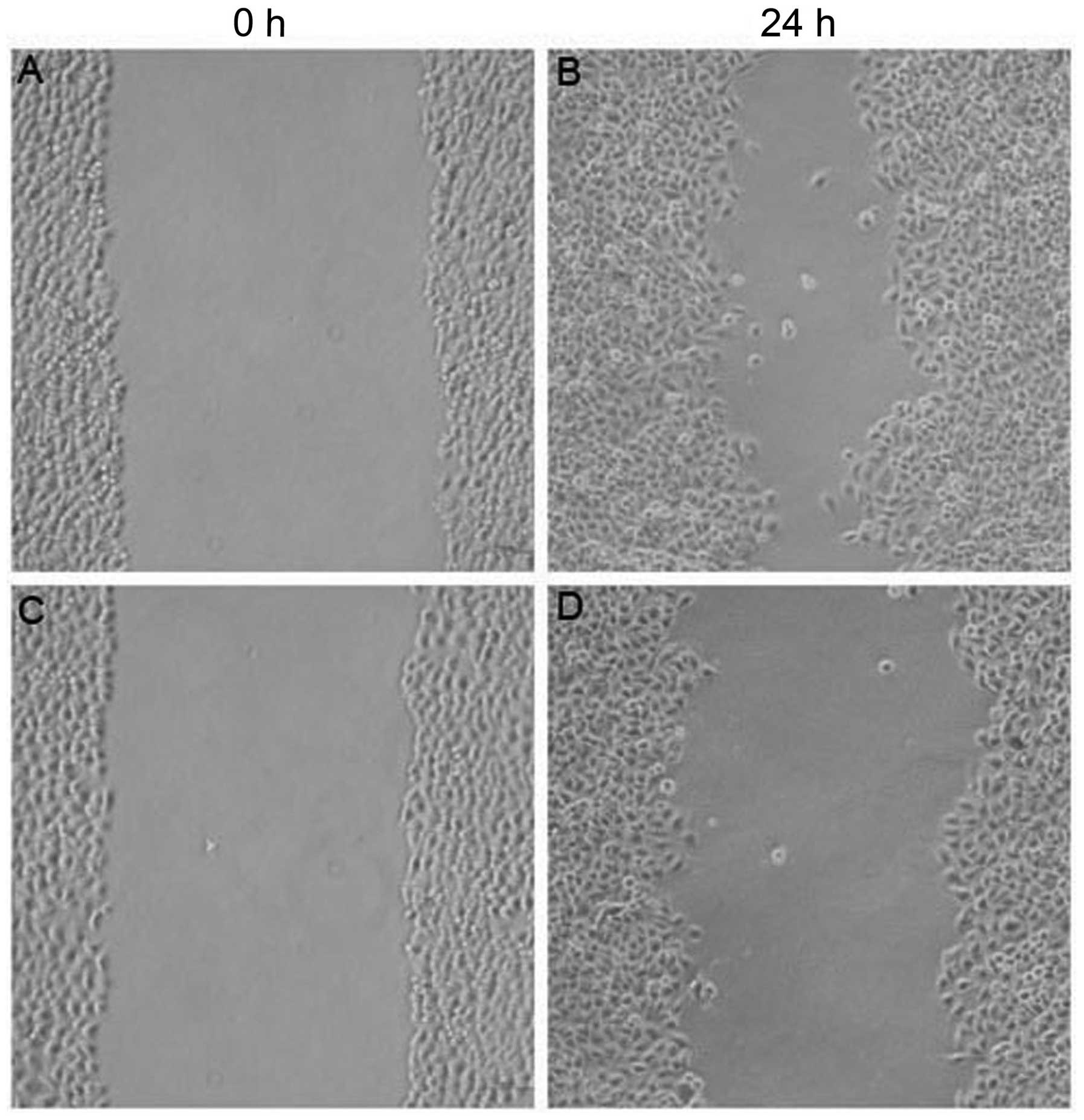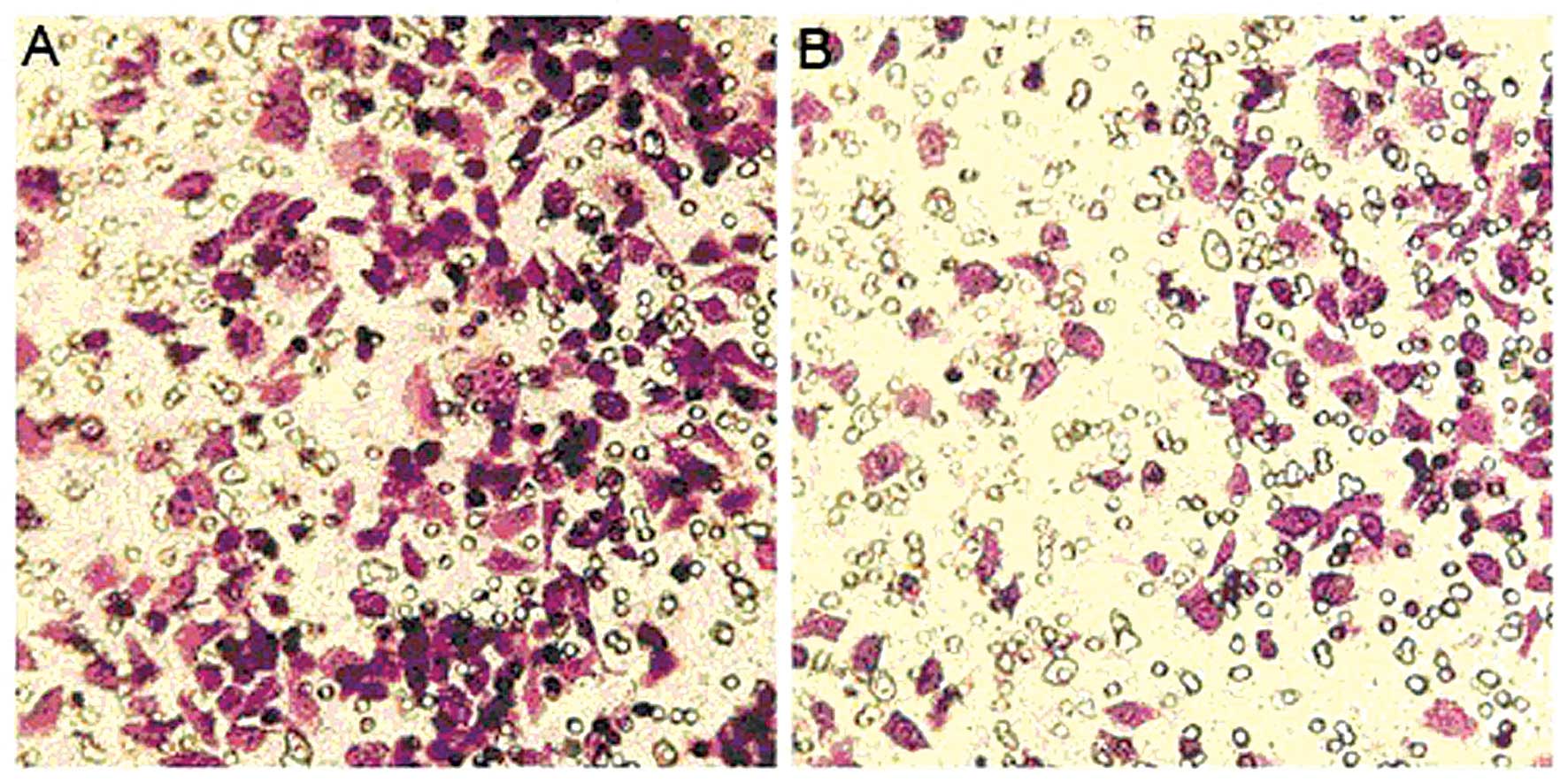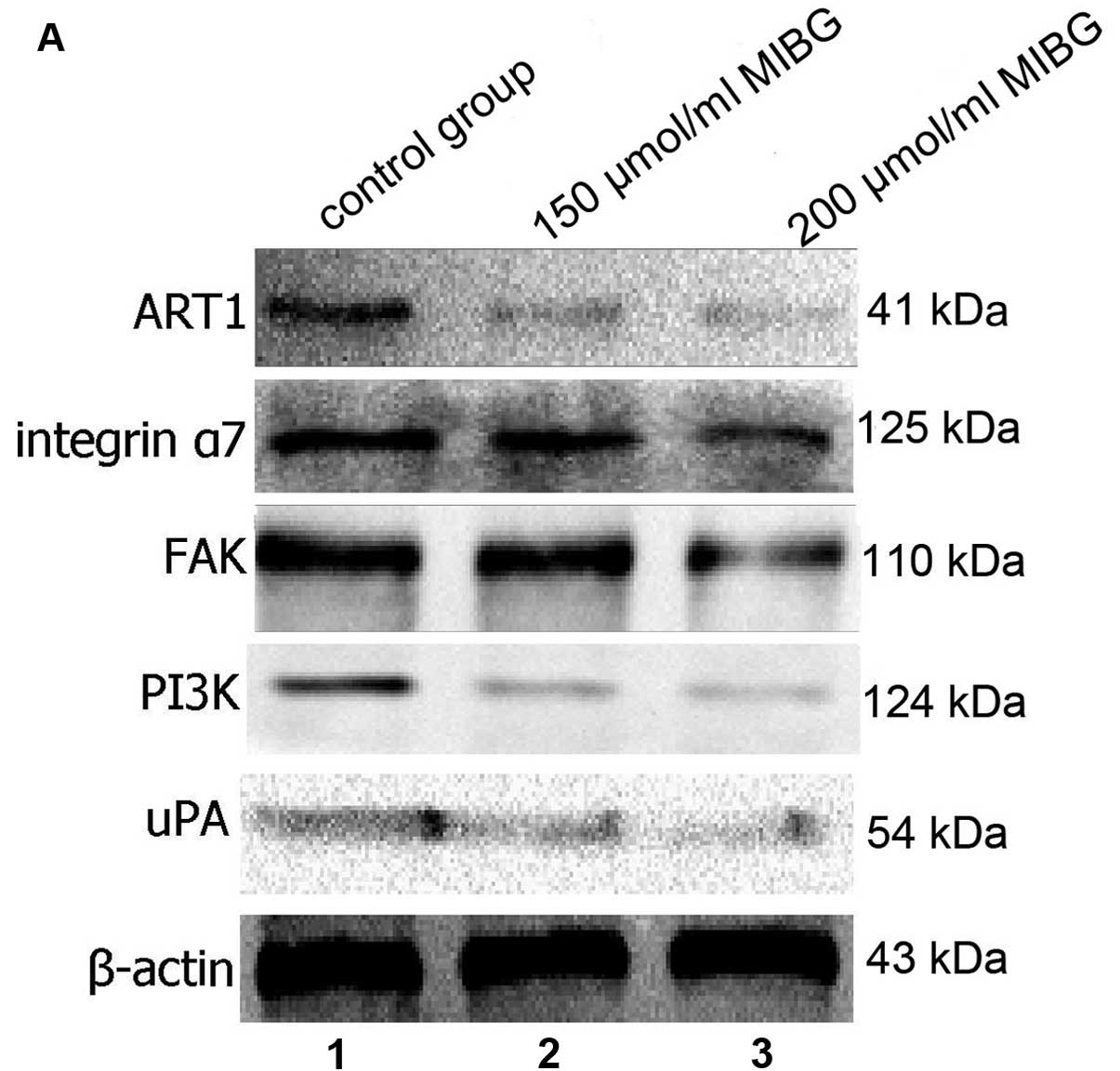|
1
|
Di Girolamo M, Dani N, Stilla A and Corda
D: Physiological relevance of the endogenous mono
(ADP-ribosyl)ation of cellular proteins. FEBS J. 272:4565–4575.
2005.PubMed/NCBI
|
|
2
|
Corda D and Di Girolamo M: Functional
aspects of protein mono-ADP-ribosylation. EMBO J. 22:1953–1958.
2003. View Article : Google Scholar : PubMed/NCBI
|
|
3
|
Zolkiewska A and Moss J: Processing of
ADP-ribosylated integrin 7 in skeletal muscle myotubes. J Biol
Chem. 270:9227–9233. 1995. View Article : Google Scholar : PubMed/NCBI
|
|
4
|
Friedrich M, Böhlig L, Kirschner RD,
Engeland K and Hauschildt S: Identification of two regulatory
binding sites which confer myotube specific expression of the
mono-ADP-ribosyltransferase ART1 gene. BMC Mol Bio. 9:912008.
View Article : Google Scholar : PubMed/NCBI
|
|
5
|
Zhao Z, Gruszczynska-Biegala J and
Zolkiewska A: ADP-ribosylation of integrin alpha7 modulates the
binding of integrin alpha7beta1 to laminin. Biochem J. 385:309–317.
2005. View Article : Google Scholar : PubMed/NCBI
|
|
6
|
Loesberg C, van Rooij H and Smets LA:
Meta-iodobenzylguanidine (MIBG), a novel high-affinity substrate
for cholera toxin that interferes with cellular mono
(ADP-ribosylation). Biochim Biophys Acta. 1037:92–99. 1990.
View Article : Google Scholar : PubMed/NCBI
|
|
7
|
Yau L, Litchie B and Zahradka P: MIBG, an
inhibitor of arginine-dependent mono (ADP-ribosyl)ation, prevents
differentiation of L6 skeletal myoblasts by inhibiting expression
of myogenin and p21cip1. Exp Cell Res. 301:320–330.
2004. View Article : Google Scholar : PubMed/NCBI
|
|
8
|
Song Gl, Tang Y, Wang YL, Xu JX and Xiong
W: Effect of ART 1 gene silencing on metastatic potential of mouse
colon cancer CT26 cells and its mechanism. Tumor. 33:490–496.
2013.
|
|
9
|
Garaventa A, Gambini C, Villavecchia G, et
al: Second malignancies in children with neuroblastoma after
combined treatment with 131I-metaiodobenzylguanidine.
Cancer. 97:1332–1338. 2003. View Article : Google Scholar : PubMed/NCBI
|
|
10
|
Shapiro B: Summary, conclusions, and
future directions of [131I] metaiodobenzylguanidine
therapy in the treatment of neural crest tumors. J Nucl Biol Med.
35:357–363. 1990.
|
|
11
|
Rathinam R and Alahari SK: Important role
of integrins in the cancer biology. Cancer Metastasis Rev.
29:223–237. 2010. View Article : Google Scholar : PubMed/NCBI
|
|
12
|
Nishiuchi R, Takagi J, Hayashi M, et al:
Ligand-binding specificities of laminin-binding integrins: a
comprehensive survey of laminin-integrin interactions using
recombinant alpha3beta1, alpha6beta1, alpha7beta1 and alpha6beta4
integrins. Matrix Biol. 25:189–197. 2006. View Article : Google Scholar
|
|
13
|
Yao CC, Ziober BL, Squillace RM and Kramer
RH: α7 integrin mediates cell adhesion and migration on specific
laminin isoforms. J Biol Chem. 271:25598–25603. 1996.
|
|
14
|
Crawley S, Farrell EM, Wang W, et al: The
α7β1 integrin mediates adhesion and migration of skeletal myoblasts
on laminin. Exp Cell Res. 235:274–286. 1997.
|
|
15
|
Tsurumura T, Tsumori Y, Qiu H, et al:
Arginine ADP-ribosylation mechanism based on structural snapshots
of iota-toxin and actin complex. Proc Natl Acad Sci USA.
110:4267–4272. 2013. View Article : Google Scholar : PubMed/NCBI
|
|
16
|
Zolkiewska A: Ecto-ADP-ribose
transferases: cell-surface response to local tissue injury.
Physiology. 20:374–381. 2005. View Article : Google Scholar : PubMed/NCBI
|
|
17
|
Koistinen P and Heino J: Integrins in
cancer cell invasion Cell invasion. Landes Bioscience; 2002
|
|
18
|
Prasadam I, Farnaghi S, Feng JQ, et al:
Impact of extracellular matrix derived from osteoarthritis
subchondral bone osteoblasts on osteocytes: role of integrinβ1 and
focal adhesion kinase signaling cues. Arthritis Res Ther.
15:R1502013.PubMed/NCBI
|
|
19
|
Lim ST, Chen XL, Lim Y, et al: Nuclear FAK
promotes cell proliferation and survival through FERM-enhanced p53
degradation. Mol Cell. 29:9–22. 2008. View Article : Google Scholar : PubMed/NCBI
|
|
20
|
Schaller MD: Biochemical signals and
biological responses elicited by the focal adhesion kinase. Biochim
Biophys Acta. 1540:1–21. 2001. View Article : Google Scholar : PubMed/NCBI
|
|
21
|
Zhao J and Guan JL: Signal transduction by
focal adhesion kinase in cancer. Cancer Metastasis Rev. 28:35–49.
2009. View Article : Google Scholar : PubMed/NCBI
|
|
22
|
Thamilselvan V, Craig DH and Basson MD:
FAK association with multiple signal proteins mediates
pressure-induced colon cancer cell adhesion via a Src-dependent
PI3K/Akt pathway. FASEB J. 21:1730–1741. 2007. View Article : Google Scholar : PubMed/NCBI
|
|
23
|
Shen TL and Guan JL: Differential
regulation of cell migration and cell cycle progression by FAK
complexes with Src, PI3K, Grb7 and Grb2 in focal contacts. FEBS
Lett. 499:176–181. 2001. View Article : Google Scholar : PubMed/NCBI
|
|
24
|
Xia H, Nho RS, Kahm J, Kleidon J and Henke
CA: Focal adhesion kinase is upstream of phosphatidylinositol
3-kinase/Akt in regulating fibroblast survival in response to
contraction of type I collagen matrices via a β1 integrin viability
signaling pathway. J Biol Chem. 279:33024–33034. 2004.PubMed/NCBI
|
|
25
|
Chandrasekar N, Mohanam S, Gujrati M,
Olivero WC, Dinh DH and Rao JS: Downregulation of uPA inhibits
migration and PI3k/Akt signaling in glioblastoma cells. Oncogene.
22:392–400. 2003. View Article : Google Scholar : PubMed/NCBI
|
|
26
|
Nowicki TS, Zhao H, Darzynkiewicz Z, et
al: Downregulation of uPAR inhibits migration, invasion,
proliferation, FAK/PI3K/Akt signaling and induces senescence in
papillary thyroid carcinoma cells. Cell Cycle. 10:100–107. 2011.
View Article : Google Scholar
|
|
27
|
Shukla S, MacLennan GT, Hartman DJ, Fu P,
Resnick MI and Gupta S: Activation of PI3K-Akt signaling pathway
promotes prostate cancer cell invasion. Int J Cancer.
121:1424–1432. 2007. View Article : Google Scholar : PubMed/NCBI
|
|
28
|
Kargiotis O, Chetty C, Gogineni V, et al:
uPA/uPAR downregulation inhibits radiation-induced migration,
invasion and angiogenesis in IOMM-Lee meningioma cells and
decreases tumor growth in vivo. Int J Oncol. 33:937–947.
2008.PubMed/NCBI
|
|
29
|
Dass K, Ahmad A, Azmi AS, Sarkar SH and
Sarkar FH: Evolving role of uPA/uPAR system in human cancers.
Cancer Treat Rev. 34:122–136. 2008. View Article : Google Scholar : PubMed/NCBI
|
|
30
|
Ulisse S, Baldini E, Sorrenti S and
D’Armiento M: The urokinase plasminogen activator system: a target
for anti-cancer therapy. Curr Cancer Drug Targets. 9:32–71. 2009.
View Article : Google Scholar : PubMed/NCBI
|
|
31
|
Bevan P and Mala C: The role of uPA and
uPA inhibitors in breast cancer. Breast Care. 3:1–2. 2008.
View Article : Google Scholar : PubMed/NCBI
|
|
32
|
Chan CF, Yau TO, Jin DY, Wong CM, Fan ST
and Ng IO: Evaluation of nuclear factor-κB, urokinase-type
plasminogen activator, and HBx and their clinicopathological
significance in hepatocellular carcinoma. Clin Cancer Res.
10:4140–4149. 2004.
|















